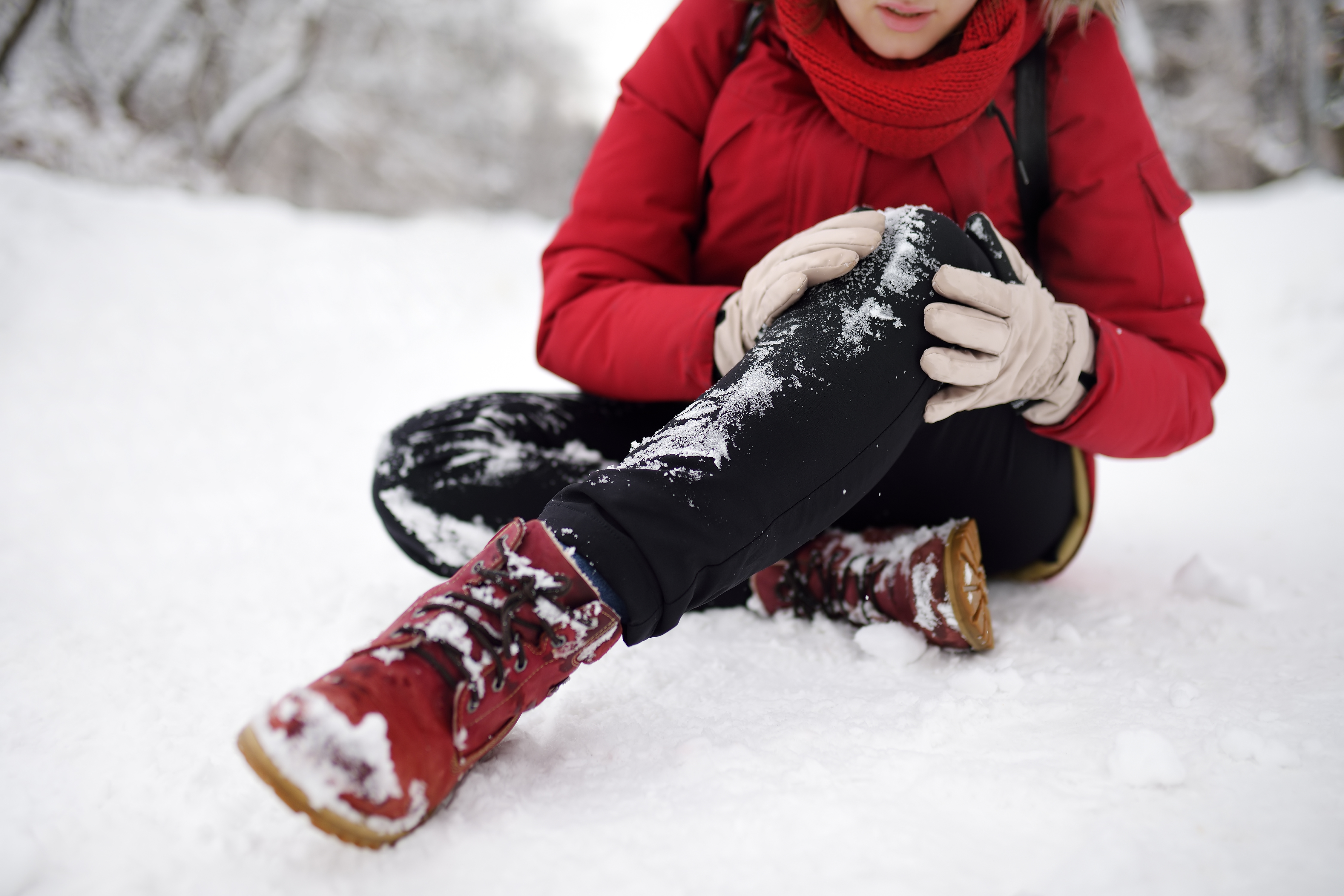
If some of us had our way, we'd cozy up inside all winter long. Others embrace the cold weather, looking forward to adventurous winter sports. Either way, whether running errands or heading out to sled with your kids, it's unlikely that you'll completely avoid going outside this winter.
With the dangers that come with cold or harsh winter weather, it's important to stay safe. Below, Summit Health family and sports medicine doctor April Barnum, DO who practices in Ramsey, NJ and CityMD urgent care physician and Regional Medical Director Katharine Miao, MD provide some advice on how to do just that.
Risky business
Sometimes even the most mundane activity creates risk, especially if snow and ice are involved. Some common winter injuries include:
- Slipping on ice: "The biggest thing we notice with slips and falls is that people try to brace themselves," says Dr. Miao. This often leads to wrist injuries, as well as arm, shoulder, leg, and head injuries.
- Muscle strain from shoveling snow: There are many reasons people don't enjoy clearing snow and ice, including the irritation it can cause of the cartilage connected to the ribs, known as costochondritis. It's difficult to relieve the pain.
- Winter sports accidents or trauma: For skiers, snowboarders, and recreational ice skaters, winter is prime sports season. But no matter how athletically gifted you are, there's always a risk, ranging from falls to sunburn or windburn. Dr. Barnum also highlights the risk of photokeratitis, which is when "the eye itself gets burned because UV light tends to reflect off of the snow."
- Car accidents: "I definitely see more motor vehicle accidents in the winter due to ice and people not stopping in time, as well as people being blinded by snow," notes Dr. Barnum. As Dr. Miao points out, “Because people don't take the elements into consideration during planning, they often rush, making for an even more dangerous drive.”
How do I stay safe?
Dr. Barnum and Dr. Miao recommend the following basic precautions to help ensure you make it through the winter safely:
- Dress properly: "Wear good footwear when outside," advises Dr. Barnum. "You want shoes with good traction and the laces tied tightly." If you're out on the slopes, make sure you're using the proper equipment and wearing the proper gear, including ski goggles and sunscreen.
- Take a break: In addition to the potential for muscle strain, shoveling snow is simply exhausting. “If you're tackling a lot of snow, be sure to take regular breaks,” advises Dr. Miao. Or, even better, recruit someone to help you. It will save time and make it more enjoyable.
- Be prepared: "It's better to be overprepared than under-prepared," notes Dr. Miao. Start with salting the sidewalk before leaving the house. If you're driving somewhere, give yourself plenty of time so you can drive cautiously.
- Pay attention to what your body tells you: "If you get injured, whether it's from a slip and fall or unexpected sun exposure, seek medical care," emphasizes Dr. Barnum. "No matter how small the injury is, it's still an injury and it should be examined if there is any concern."
